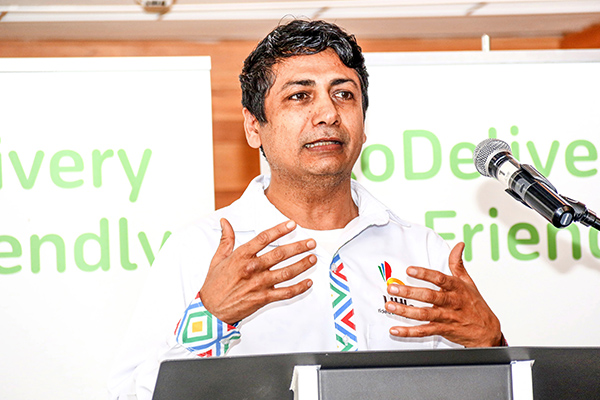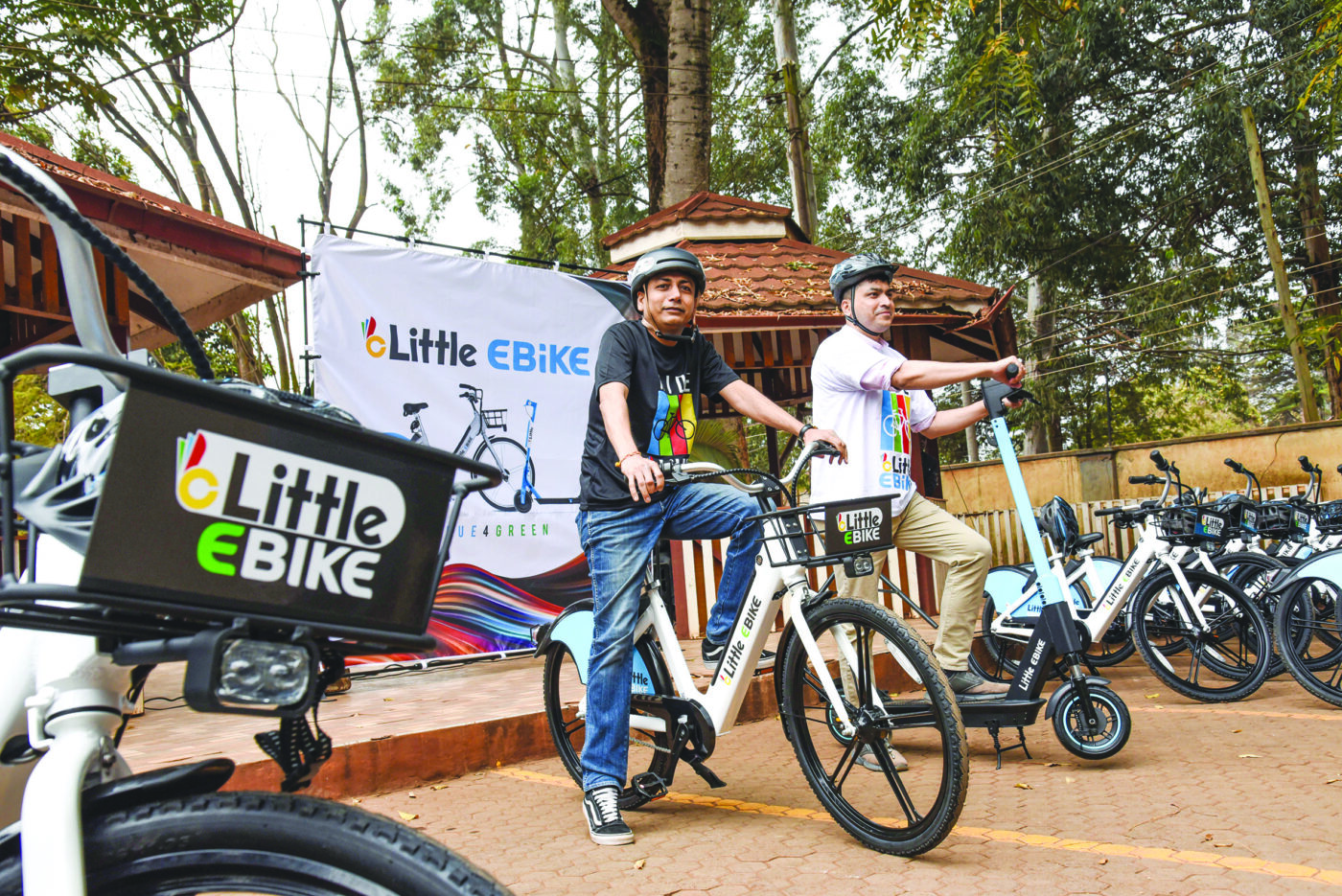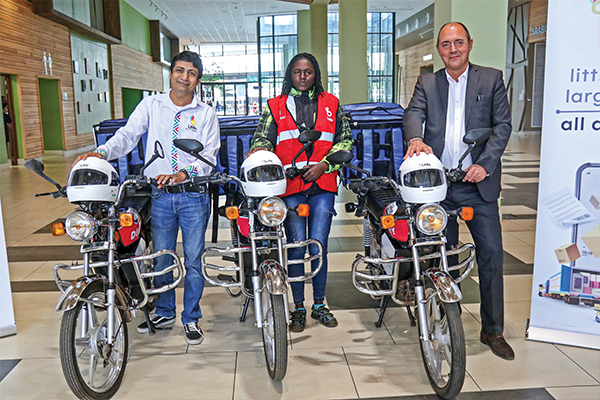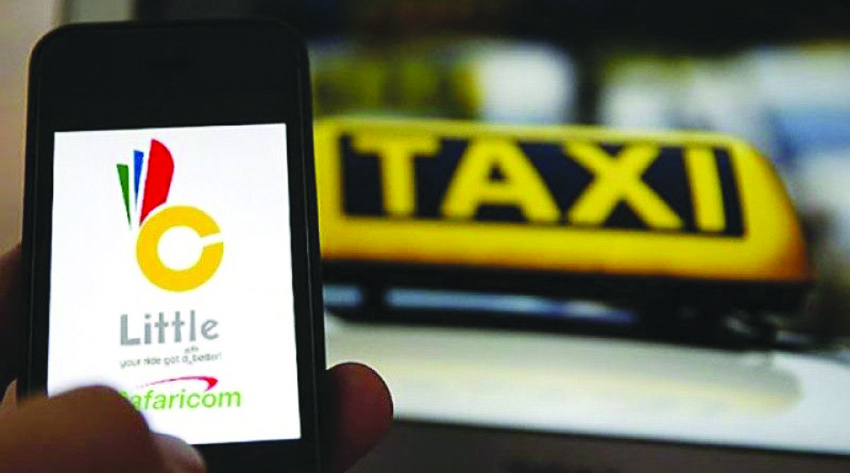#24
LITTLE CAB
Little Cab is one of Kenya’s leading ride-hailing services that was formed through a collaboration between Safaricom and leading Kenyan software development company, Craft Silicon. Under the leadership of its Founder and Chief Executive Officer (CEO), Kamal Budhabhatti, Little has swiftly risen to prominence, earning a reputation as a highly professional and user-friendly ride-hailing service. Since its launch eight years ago, Little has transcended national borders, extending its operations to Tanzania, Ethiopia, India, Senegal, Uganda, Somalia, and more recently, Ghana.
Accessible through a smartphone application compatible with Android, Windows, and iOS devices, Little caters to diverse rider preferences with a range of car categories. Setting a global precedent, the app features a short code messaging system, enabling users with traditional phones to request a taxi through USSD technology – a pioneering move in location-based services for non-smartphones. Beyond its innovation in technology, Little Cab provides transportation and delivery services for both corporate institutions and individual users seven days a week.
While Little excels as a premier ride-hailing service, what sets it apart is its strong commitment to environmental, social, and governance (ESG) principles.
For instance, Little has made significant strides in its commitment to protecting the environment by incorporating electric bikes and scooters into its fleet. These two-wheelers are equipped with a geofence, utilising location-based technology to confine their usage within specified virtual perimeters, effectively controlling their movements. The introduction of electric bikes represents a notable advancement in lowering carbon emissions, as these vehicles operate with an electric component that complements manual pedalling, reducing rider fatigue.

Additionally, e-scooters require minimal effort from users. The bikes boast a robust design, requiring service attention only after nine months of use, reflecting Little’s commitment to sustainable practices. With a nightly charging routine and a range of up to 40 kilometres (km) on a full charge, these electric vehicles are both eco-conscious and practical. The pricing model, set at KES 20 per hour with a maximum two-hour limit per ride, aligns with Little’s focus on providing accessible and sustainable micro-mobility options.
Moving into the social arm of ESG, Little, in its ongoing commitment to inclusivity and gender diversity, has implemented programs aimed at equipping women with essential business skills, particularly in the ride-hailing industry. Recognising the shared barriers faced by women in Kenya, the corporation has prioritised initiatives focused on financial literacy, job training, entrepreneurship development, and economic self-sufficiency. Little’s dedication to empowering women extends beyond national boundaries, reflecting a Pan-African commitment and a key priority for Little. The corporation has pioneered the LadyBUG category, a women-only classification encouraging female drivers to enter the ride-hailing sector. As part of the broader Little Women Initiative (LWI), launched in 2022, Little has established women’s economic empowerment programs in over four African countries, with a goal to empower one million women drivers in Africa by 2030. Little has further expanded its impact by rolling out a program recruiting lady riders to work as delivery agents for partners like Carrefour and KFC. Little fosters innovation while also establishing a foundation for scaling and replicating effective programs on a continental scale.

To protect user information, Little possesses a comprehensive privacy policy, aligning with both the social and good governance aspects of ESG. Firstly, Little acknowledges the importance of privacy in its operations, as reflected in its privacy policy. The policy explicitly outlines the types of information collected, including personal and anonymous data, emphasising the significance of protecting user privacy. Little is also transparent about the information it processes. The corporation affirms its commitment to ethical data processing by explicitly stating that it does not collect sensitive data, such as racial or ethnic origin, political opinions, or health-related information.
In addition, Little emphasises user control and consent over their personal information. By agreeing to the terms of the Privacy Policy, users provide informed consent for the collection, storage, and use of their data, emphasising responsible data management and governance practices.
The company further demonstrates its commitment to the good governance aspect of ESG by implementing security measures to safeguard user information. Little employs reasonable administrative, physical, and electronic measures to protect data from unauthorised access, ensuring the confidentiality and integrity of user information.
Moreover, Little is committed to complying with applicable legal requirements, relevant industry standards, and its policies. The corporation also states its willingness to cooperate with regulators, government entities, and official inquiries.

during the launch of the E-commerce electric bikes at Sarit Center, Nairobi on July 28, 2022.
Little incorporates measures related to user age restrictions, reinforcing social responsibility. Users must be 18 years of age to register, and the company explicitly states that it does not knowingly collect personal information from individuals under 18 years of age.
To add onto that, Little’s detailed data retention policies demonstrate responsible governance. The corporation specifies retention periods for different types of data, including financial data and journey history.
Through its Drivers Anti-Discriminatory-Equality Policy, Little emphasises fair and equal treatment for all users on its platform. Little firmly stands against discrimination based on race, religion, national origin, disability, sexual orientation, marital status, gender identity, age, or any other protected characteristic. This anti-discrimination policy extends to all aspects of the platform, including personal interactions, reviews, ratings, and the provision and acceptance of services.

Little takes a proactive stance by not only penalising clients found in violation of this policy, but also providing a mechanism for drivers, riders or clients to seek timely assistance in cases of assault, abuse, or harassment. The corporation is not just reactive; it actively works to break down barriers to equal participation for underrepresented or disadvantaged groups in Africa. Moreover, Little encourages user feedback on how to improve its adherence to this policy, providing a channel for anonymous suggestions at [email protected], and committing to respond within 24-72 hours, outlining any steps taken in response to the feedback.
Little stands out as a premier and innovative ride-hailing service which demonstrates an unwavering commitment to environmental sustainability, social inclusivity, and good governance. From pioneering the introduction of electric bikes and scooters; to empowering women through the LWI; to implementing stringent privacy measures, and promoting equality through its Anti-Discriminatory-Equality Policy; Little exemplifies a holistic dedication to ESG principles.
















